In "The Lady of the Shroud," Bram Stoker weaves a captivating tale that melds elements of gothic horror with romance and adventure. Set against the backdrop of a mysterious Caribbean island, the novel explores themes of isolation, identity, and the supernatural. Stoker employs a varied narrative style, utilizing letters, diary entries, and third-person accounts to create a multifaceted viewpoint that enhances the tension and atmosphere of the story. The book is notable for its rich characterizations and vivid descriptions, while also incorporating elements of colonial intrigue, reflecting the anxieties of late Victorian society regarding the unknown and the exotic. Bram Stoker, famed for his iconic work "Dracula," wrote "The Lady of the Shroud" in a period where the fascination with the supernatural was at its peak. His extensive travels and interests in folklore and mysticism profoundly influenced his writing. Stoker's personal experiences and academic pursuits in literature and history provided him with the depth to craft narratives that entertain while probing the darker aspects of human nature. Recommending "The Lady of the Shroud" is to invite readers into an enigmatic world that brims with suspense and emotional resonance. Fans of gothic literature and those seeking a poignant exploration of love in the face of moral uncertainty will find themselves enthralled by Stoker's masterful storytelling.

150 Classics You Should Read Before You Die : Romeo and Juliet, Emma, Vanity Fair, Middlemarch, Tom Sawyer, Faust, Notre Dame de Paris, Dubliners, Odyssey
William Shakespeare, John Milton, Jonathan Swift, Daniel Defoe, Henry Fielding, Laurence Sterne, Jane Austen, William Makepeace Thackeray, P. B. Shelley, Mary Shelley, John Keats, Charlotte Brontë, Emily Brontë, Anne Brontë, George Eliot, Charles Dickens, Thomas Hardy, Elizabeth von Arnim, D. H. Lawrence, Ann Ward Radcliffe, Bram Stoker, Arthur Conan Doyle, Joseph Conrad, Oscar Wilde, Lewis Carroll, Frances Hodgson Burnett, C. S. Lewis, George Weedon Grossmith, H. G. Wells, Willkie Collins, G. K. Chesterton, E. M. Forster, T. S. Eliot, James Joyce, George Bernard Shaw, W. B. Yeats, Sir Walter Scott, Robert Louis Stevenson, Kenneth Grahame, George MacDonald, J. M. Barrie, Mark Twain, Jack London, Herman Melville, Nathaniel Hawthorne, Louisa May Alcott, Willa Cather, Edith Wharton, Kate Chopin, Henry David Thoreau, Walt Whitman, Kahlil Gibran, Harriet Beecher Stowe, Frederick Douglass, James Fenimore Cooper, Henry James, Edgar Allan Poe, H. P. Lovecraft, Lewis Wallace, L. M. Montgomery, Homer, Apuleius, Marcus Aurelius, Johann Wolfgang von Goethe, Herman Hesse, Friedrich Nietzsche, Jules Verne, Marcel Proust, Victor Hugo, Gustave Flaubert, Gaston Leroux, Honoré de Balzac, Stendhal, Plato
book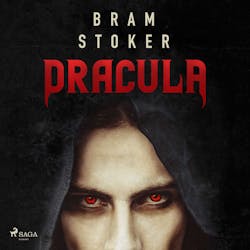
Dracula
Bram Stoker
audiobookbook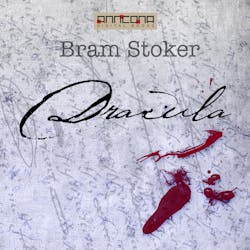
Dracula
Bram Stoker
audiobookbook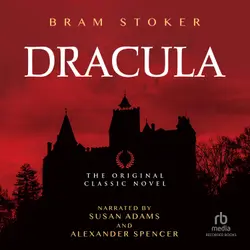
Dracula
Bram Stoker
audiobook
Dracula
Bram Stoker
audiobookbook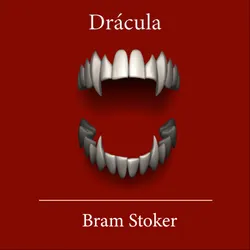
Dracula
Bram Stoker
audiobookbook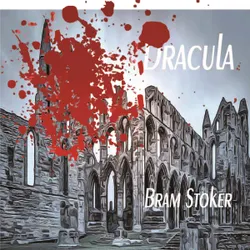
Dracula
Bram Stoker
audiobookbook
Dracula
Bram Stoker
audiobookbook
Dracula
Bram Stoker
book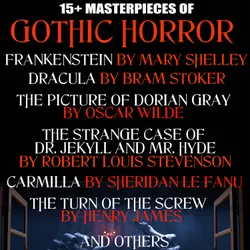
15+ Masterpieces of Gothic Horror. Classics Collection : Frankenstein, Dracula, The Picture of Dorian Gray, The Strange Case of Dr. Jekyll and Mr. Hyde, Carmilla, The Turn of the Screw and others
Mary Shelley, Bram Stoker, Oscar Wilde, Robert Louis Stevenson, Edgar Allan Poe, Washington Irving, Sheridan Le Fanu, Henry James, Arthur Machen, Nikolai Gogol
audiobookbook
DRACULA by Bram Stoker [2025 Kindle Edition] - The #1 Classic Vampire Horror Novel that Inspired Nosferatu | FREE with Kindle Unlimited
Bram Stoker, Redhouse
book
Dracula
Bram Stoker
audiobookbook
